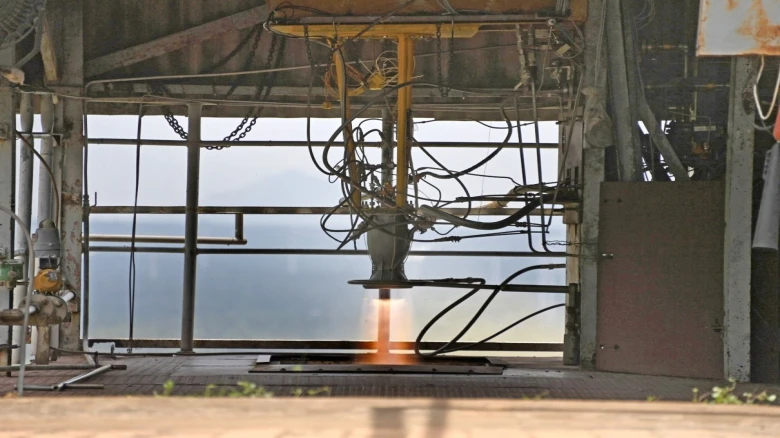Regional

The engine, known as the PS4 engine, has traditionally been manufactured using conventional machining and welding methods...
Digital Desk: The Indian Space Research Organisation (ISRO) achieved a significant breakthrough on Thursday, by successfully hot-testing a liquid rocket engine manufactured through Additive Manufacturing (AM) technology. This milestone represents a remarkable advancement in propulsion technology for space missions, signaling a new era of innovation and efficiency.
The engine, known as the PS4 engine, has traditionally been manufactured using conventional machining and welding methods. It has been utilized in the fourth stage of the Polar Satellite Launch Vehicle (PSLV) and the Reaction Control System (RCS) of the first stage (PS1) of PSLV. With a thrust of 7.33 kN in vacuum conditions, the engine employs earth-storable bipropellant combinations of Nitrogen Tetroxide as oxidizer and Mono Methyl Hydrazine as fuel in pressure-fed mode.
The Liquid Propulsion Systems Centre (LPSC) of ISRO undertook the redesign of the engine to make it compatible with the Design for Additive Manufacturing (DfAM) concept, thereby unlocking significant advantages in manufacturing efficiency and performance enhancement.
Manufactured by the Indian industry (M/s WIPRO 3D), the engine underwent hot testing at the ISRO Propulsion Complex in Mahendragiri. Before the hot test, detailed flow and thermal modeling, structural simulation, and cold flow characterization were conducted to ensure the integrity and performance of the engine.
The successful completion of four developmental hot tests, totaling 74 seconds in cumulative duration, validated the engine's performance parameters, affirming its readiness for deployment in future space missions. ISRO's achievement underscores its commitment to pushing the boundaries of technological innovation and propelling India's space exploration endeavors to new heights.
Leave A Comment